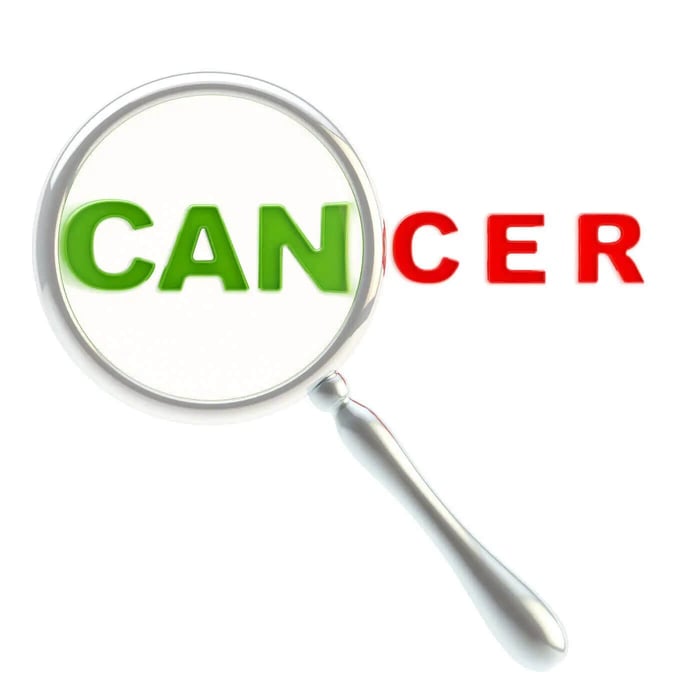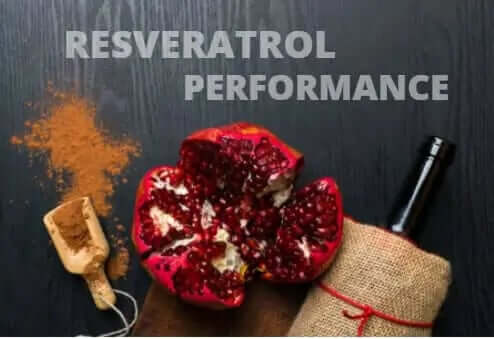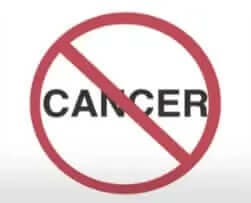Resveratrol: Breakthrough Research on Cancer Prevention and Cellular Health
Resveratrol has emerged as a powerful compound in cancer research, showing remarkable potential alongside aspirin in targeting cancer cells. This comprehensive guide explores groundbreaking studies revealing how resveratrol activates specific proteins that selectively eliminate potentially cancerous cells, offering hope for natural cancer prevention strategies.
Understanding Resveratrol's Role in Cellular Protection
Cellular replication represents one of nature's most intricate processes, where even minor errors can have profound consequences. When DNA replication goes awry, the results can range from accelerated aging conditions like Progeria to the development of cancer. Recent research has illuminated how resveratrol may serve as a protective agent against these cellular mishaps, particularly in preventing the cascade of mutations that lead to cancer formation.
The journey from healthy cell to cancerous cell often begins with a specific type of DNA error called polyploidy, where cells create extra sets of DNA copies. While most cells cannot survive this mutation and naturally die off or face elimination by our immune system, the few that persist can trigger a domino effect of genetic changes. This understanding has driven researchers to seek compounds that can target these polyploid cells before they transform into cancer.
Groundbreaking Study: How Resveratrol and Aspirin Target Cancer Cells
A landmark study published in the Proceedings of the National Academy of Sciences revealed fascinating insights into how resveratrol works at the molecular level to combat cancer. Researchers discovered that polyploid cells, while resistant to many anti-cancer agents, show particular vulnerability to compounds that activate AMP-activated protein kinase (AMPK), a crucial cellular energy sensor.

This discovery led scientists to screen various compounds for AMPK activation potential. Among the tested substances, resveratrol and aspirin emerged as champions, demonstrating selective killing of both human colon cancer cell lines and mouse epithelial cancer cells. The implications of these findings offer tremendous hope for those seeking natural approaches to cancer prevention.
Specific Cancer Types Affected by Resveratrol Treatment
The research specifically focused on colon cancer models, where resveratrol showed exceptional promise. In controlled laboratory settings, researchers observed that resveratrol could:
- Selectively target and eliminate human colon cancer cell lines
- Effectively kill mouse epithelial cancer cells
- Demonstrate consistent results in live mouse colon cancer models
- Work synergistically with the body's natural defense mechanisms
These findings suggest that resveratrol doesn't just randomly attack cells but instead precisely targets those with cancerous potential, leaving healthy cells unharmed. This selectivity makes resveratrol particularly attractive for preventive health strategies.
The Science Behind Resveratrol's Cancer-Fighting Mechanism
Understanding how resveratrol accomplishes its cancer-fighting effects provides valuable insight into its potential applications. The research team meticulously proved that resveratrol's anti-cancer activity specifically requires AMPK activation. This discovery carries significant weight because:
- Targeted Action: AMPK activation triggers specific cellular pathways that make cancer cells vulnerable
- Multiple Benefits: While resveratrol affects various cellular targets, AMPK activation appears central to its anti-cancer effects
- Comparative Advantage: Unlike aspirin, which also activates AMPK, resveratrol doesn't carry risks of gastrointestinal complications
- Natural Origin: As a compound found in grapes, berries, and peanuts, resveratrol offers a nature-based approach to health
AMPK Activation: The Key to Resveratrol's Success
AMPK serves as a master regulator of cellular energy metabolism. When resveratrol activates this protein, it triggers a cascade of beneficial effects:
| AMPK Effect | Benefit for Cancer Prevention |
|---|---|
| Energy Metabolism Regulation | Starves cancer cells of necessary resources |
| Cell Growth Inhibition | Prevents uncontrolled cellular proliferation |
| Autophagy Activation | Helps eliminate damaged cellular components |
| DNA Repair Enhancement | Reduces mutation accumulation |
Resveratrol vs. Aspirin: Making the Safer Choice
While both resveratrol and aspirin demonstrated similar AMPK activation levels in the study, crucial differences emerge when considering long-term use. Aspirin, despite its benefits, carries well-documented risks of gastrointestinal hemorrhage with extended use. This side effect can be particularly concerning for individuals seeking preventive health measures.

Resveratrol, conversely, offers a gentler approach to achieving similar cellular benefits. As a naturally occurring compound with a long history of safe consumption through dietary sources, resveratrol presents an attractive alternative for those prioritizing both efficacy and safety in their health regimen.
Additional Benefits of Choosing Resveratrol
Beyond its cancer-preventive properties, resveratrol offers a spectrum of health benefits that make it an exceptional choice for overall wellness:
- Cardiovascular Protection: Supports heart health through multiple mechanisms
- Anti-Aging Properties: Activates sirtuins, proteins associated with longevity
- Neuroprotective Effects: May help protect brain cells from age-related decline
- Anti-Inflammatory Action: Reduces chronic inflammation linked to various diseases
- Metabolic Support: Aids in maintaining healthy blood sugar levels
Implementing Resveratrol for Optimal Health Benefits
Understanding how to incorporate resveratrol into your wellness routine can maximize its protective effects. While dietary sources provide some resveratrol, achieving therapeutic levels often requires supplementation. Consider these approaches:
Dietary Sources of Resveratrol
Natural food sources containing resveratrol include:
- Red Grapes: Particularly the skin contains high concentrations
- Blueberries: Offer resveratrol along with other beneficial compounds
- Cranberries: Provide modest amounts of resveratrol
- Peanuts: Contain resveratrol, especially when roasted
- Dark Chocolate: Small amounts present in high-quality varieties
Supplementation Strategies
For those seeking therapeutic levels of resveratrol, supplementation offers a practical solution. High-quality resveratrol supplements can provide standardized doses that would be difficult to achieve through diet alone. When selecting a supplement, consider:
- Purity: Look for products with verified resveratrol content
- Bioavailability: Some formulations enhance absorption
- Dosage: Research suggests 250-500mg daily for optimal benefits
- Quality Standards: Choose products from reputable manufacturers
Future Directions in Resveratrol Research
The exciting discoveries about resveratrol and its cancer-fighting properties represent just the beginning. Ongoing research continues to explore:
- Combination therapies using resveratrol with other natural compounds
- Optimal dosing strategies for different health conditions
- Novel delivery methods to enhance bioavailability
- Expanded applications in preventive medicine
As science advances, our understanding of how resveratrol protects cellular health deepens, offering increasingly sophisticated strategies for maintaining wellness and preventing disease.
Making Informed Decisions About Resveratrol
The compelling evidence supporting resveratrol as a cancer-preventive agent provides hope for those seeking natural health solutions. The research clearly demonstrates that resveratrol can selectively target potentially cancerous cells while maintaining an excellent safety profile, making it an attractive option for long-term health maintenance.
When considering resveratrol supplementation, remember that quality matters. Pure, high-grade resveratrol supplements can provide the consistent dosing necessary to achieve the benefits observed in scientific studies. The X500 pure 500mg resveratrol formulation represents one such option, offering pharmaceutical-grade purity for those serious about their health.
Note: As with any supplement regimen, individual results may vary. This information is intended for educational purposes and should not replace professional medical advice.
Frequently Asked Questions About Resveratrol
What makes resveratrol effective against cancer cells?
Resveratrol works by activating AMPK, a crucial protein that makes cancer cells more vulnerable to elimination. This targeted mechanism allows resveratrol to selectively kill potentially cancerous cells while leaving healthy cells unharmed, offering a promising approach to cancer prevention.
How does resveratrol compare to aspirin for cancer prevention?
While both resveratrol and aspirin activate AMPK to similar levels, resveratrol offers significant safety advantages. Unlike aspirin, which can cause gastrointestinal bleeding with long-term use, resveratrol provides similar cancer-fighting benefits without these serious side effects.
What types of cancer has resveratrol been studied for?
Research has specifically demonstrated resveratrol's effectiveness against colon cancer cell lines in both human and mouse models. The compound showed consistent results in laboratory settings and live animal studies, suggesting potential applications for colon cancer prevention.
What is the recommended dosage of resveratrol for health benefits?
Research suggests that 250-500mg of pure resveratrol daily can provide optimal health benefits. High-quality supplements like X500 offer 500mg doses, matching the levels used in many scientific studies while ensuring consistent, reliable intake.
Can I get enough resveratrol from food sources alone?
While foods like red grapes, blueberries, and peanuts contain resveratrol, achieving therapeutic levels through diet alone is challenging. Supplementation provides standardized doses that match those used in research studies, ensuring you receive consistent, beneficial amounts.
Are there any side effects associated with resveratrol supplementation?
Resveratrol is generally well-tolerated with an excellent safety profile. Unlike pharmaceutical interventions, resveratrol rarely causes adverse effects when taken at recommended doses, making it suitable for long-term use as part of a preventive health strategy.
How long does it take to see benefits from resveratrol supplementation?
While some benefits of resveratrol may be noticed within weeks, the cancer-preventive effects work on a cellular level over time. Consistent, long-term supplementation provides the best opportunity for experiencing the full spectrum of resveratrol's protective benefits.
Can resveratrol be taken with other supplements or medications?
Resveratrol generally combines well with other supplements and can enhance overall wellness routines. However, always consult with healthcare providers about potential interactions, especially if taking blood-thinning medications or undergoing cancer treatment.
What should I look for when choosing a resveratrol supplement?
Select resveratrol supplements based on purity, dosage, and manufacturer reputation. Products like X500 that offer 500mg of pure resveratrol provide pharmaceutical-grade quality and match research-backed dosages for optimal effectiveness.
Is resveratrol suitable for preventive health strategies?
Absolutely. Resveratrol's ability to selectively target potentially cancerous cells while supporting overall cellular health makes it an excellent choice for preventive wellness. Its safety profile and multiple health benefits position it as a cornerstone supplement for long-term health maintenance.
References:
- Proceedings of the National Academy of Sciences - Polyploidy and Cancer Cell Response
- AMPK Activation in Cancer Prevention - Molecular Studies
- Frontiers in Pharmacology - Resveratrol and Aspirin Mechanisms







